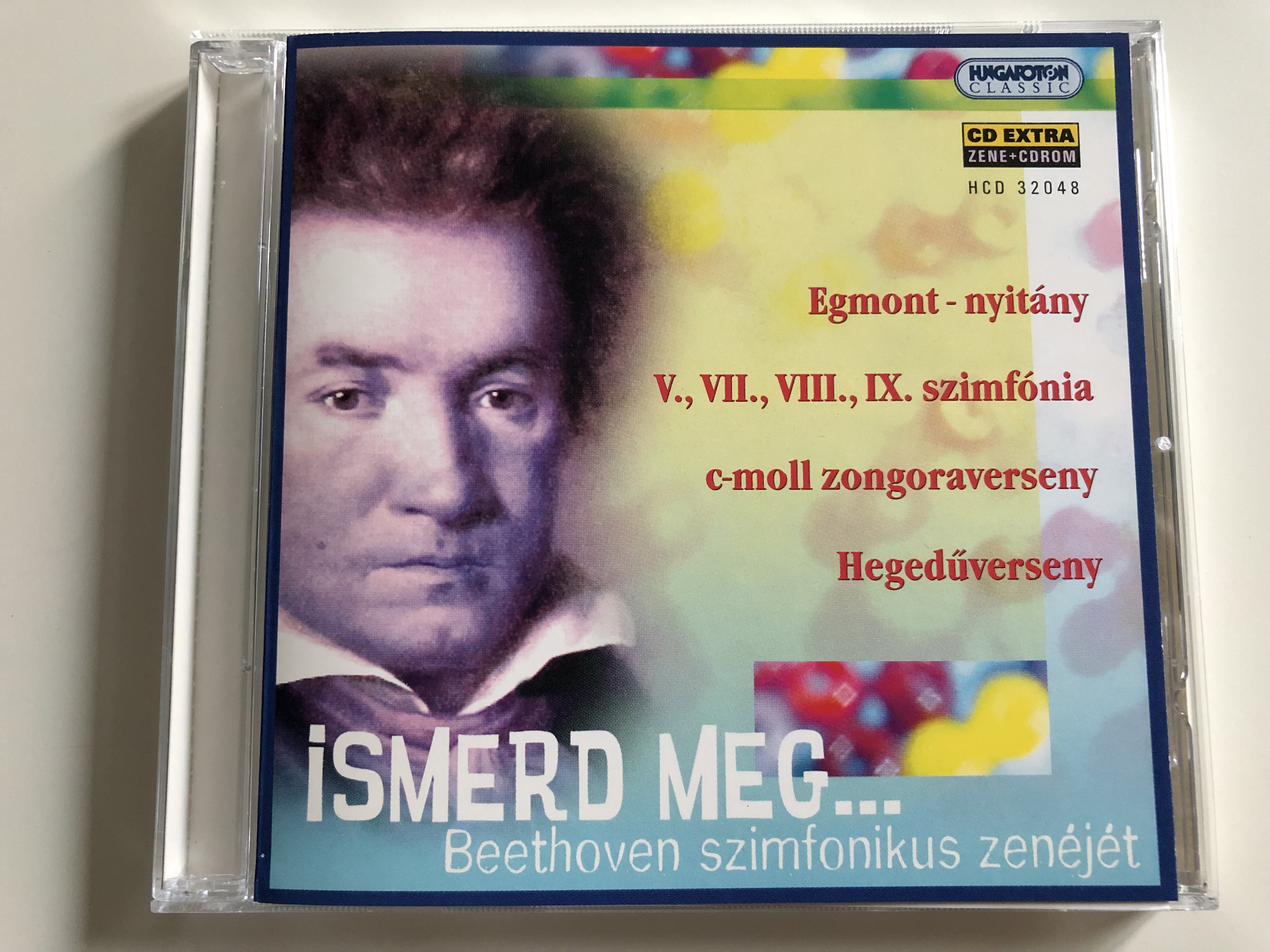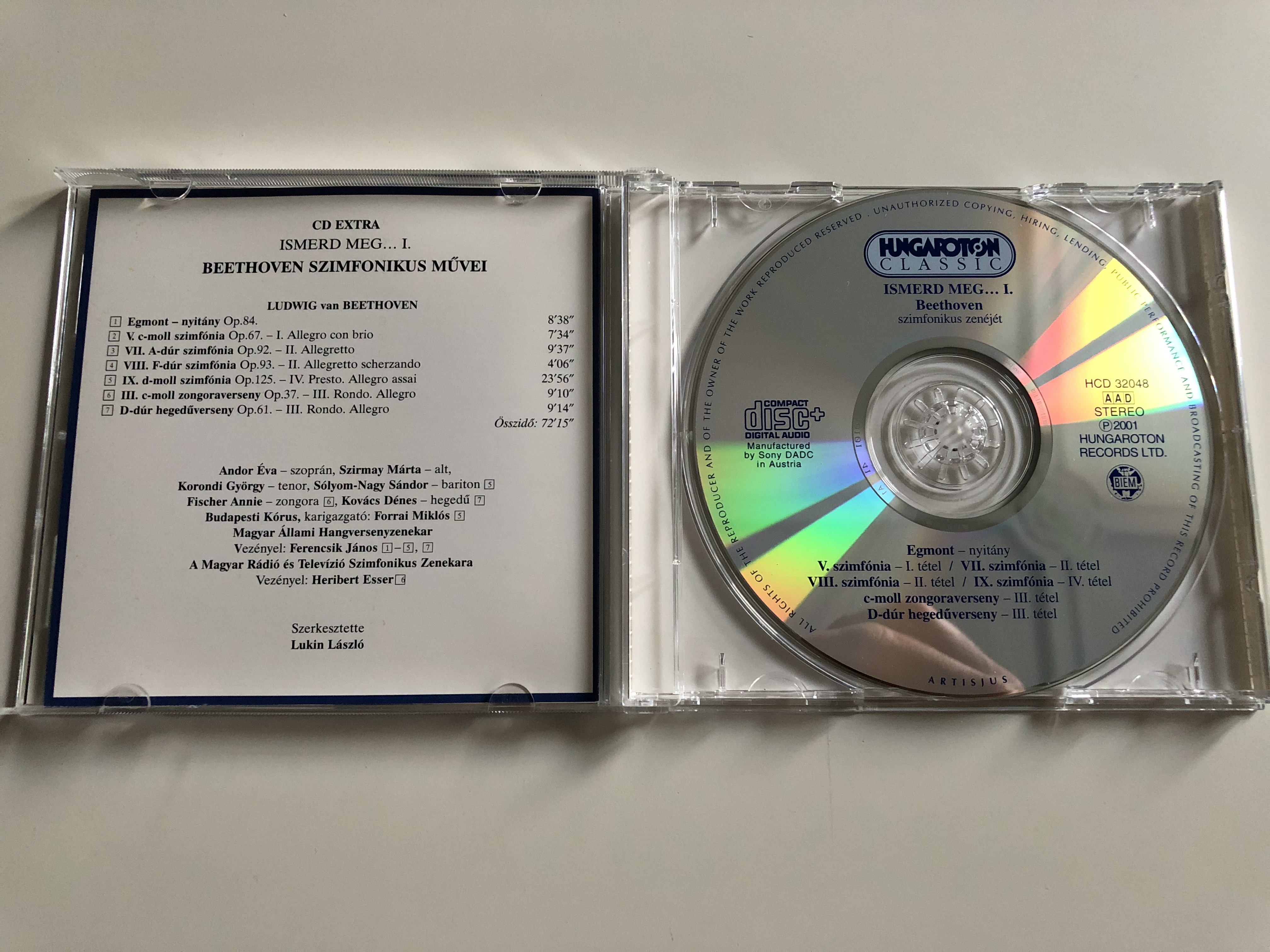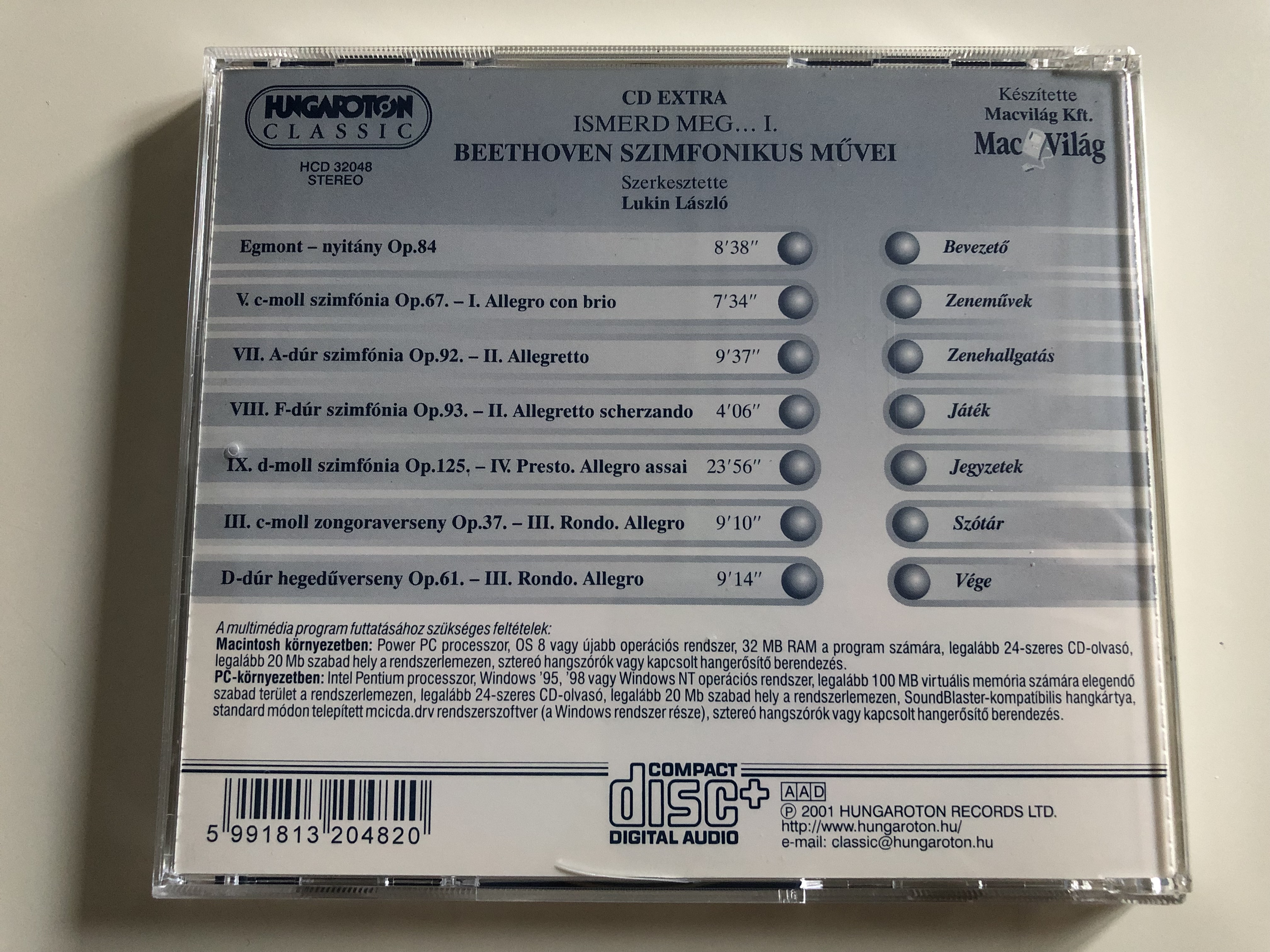Description
Ismerd meg... Beethoven szimfonikus zenéjét / Egmont - nyitány, V., VII, VIII., IX. szimfónia, c-moll zongoraverseny, Hegedűverseny / Hungaroton Classic Audio CD 2001
HCD32048
UPC 5991813204820
MADE IN HUNGARY
TOTAL TIME: 72:15
Tracklist:
Egmont - nyitány Op. 84 8:42
V. c-moll szimfónia Op. 67. - I. Allegro con brio 7:37
VII. A-dúr szimfónia Op. 92. - II. Allegretto 9:40
VIII. F-dúr szimfónia Op. 93. - II. Allegretto scherzando 4:09
IX. d-moll szimfónia Op. 125. - IV. Presto. Allegro assai 24:00
III. c-moll zongoraverseny Op. 37. - III. Rondo. Allegro 9:16
D-dúr hegedűverseny Op. 61. - III. Rondo. Allegro 9:14
Ludwig van Beethoven - baptised 17 December 1770 – 26 March 1827) was a German composer and pianist. A crucial figure in the transition between the classical and romantic eras in classical music, he remains one of the most recognized and influential musicians of this period, and is considered to be one of the greatest composers of all time.
Beethoven was born in Bonn, the capital of the Electorate of Cologne, and part of the Holy Roman Empire. He displayed his musical talents at an early age and was vigorously taught by his father Johann van Beethoven, and was later taught by composer and conductor Christian Gottlob Neefe. At age 21, he moved to Vienna and studied composition with Joseph Haydn. Beethoven then gained a reputation as a virtuoso pianist, and was soon courted by Prince Lichnowsky for compositions, which resulted in Opus 1 in 1795.
The piece was a great critical and commercial success, and was followed by Symphony No. 1 in 1800. This composition was distinguished for its frequent use of sforzandi, as well as sudden shifts in tonal centers that were uncommon for traditional symphonic form, and the prominent, more independent use of wind instruments. In 1801, he also gained notoriety for his six String Quartets and for the ballet The Creatures of Prometheus. During this period, his hearing began to deteriorate, but he continued to conduct, premiering his third and fifth symphonies in 1804 and 1808, respectively. His condition worsened to almost complete deafness by 1811, and he then gave up performing and appearing in public.

































